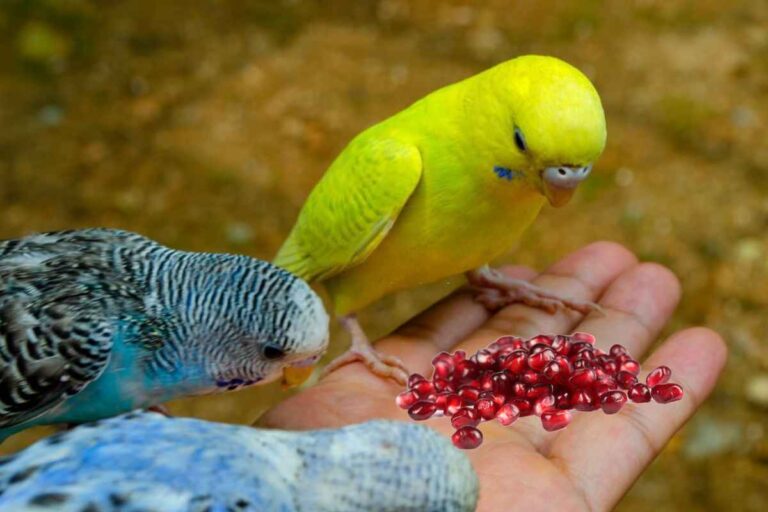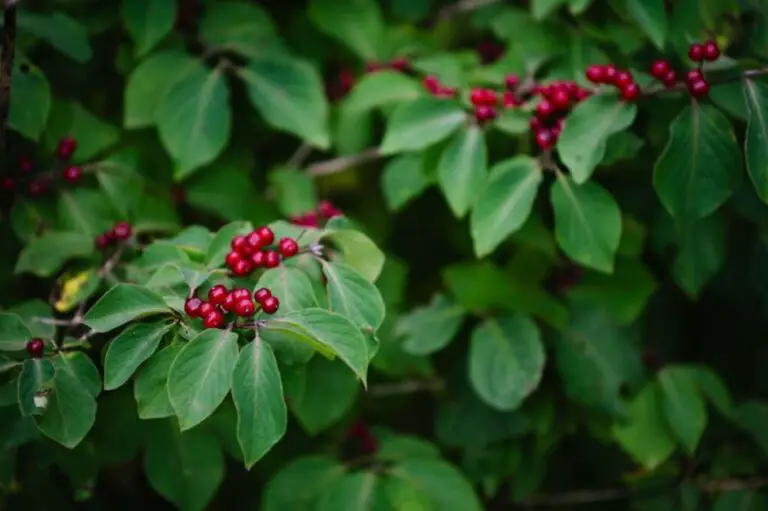Can Birds Eat Ginger? All You Need to Know
Birds can eat ginger in moderation as it’s not inherently toxic to them. However, its suitability and potential benefits can vary depending on the bird species and individual bird’s health condition. Therefore, it’s always crucial to consult with a veterinarian or an avian expert before introducing ginger or any new food to your bird’s diet.

As bird enthusiasts, we find ourselves constantly exploring the intricate world of avian diet. In our quest to offer our feathered friends the best, we often ask, “Can birds eat this?” Today, we’re focusing on an intriguing question: “Can birds eat ginger?”
Now, you might be wondering why we’re talking about this pungent root. Well, ginger isn’t just for spicing up our meals or calming our stomachs. Could it possibly do the same for our birds? Or could it pose risks we should be aware of?
In this post, we delve into understanding a bird’s diet, ginger’s properties, and its potential impact on bird health. Stick around because we’ve got some pretty intriguing insights lined up for you. Trust us, by the end, you’ll feel like an avian diet expert!
Key Takeaways:
- Ginger is a plant native to Southeast Asia, used widely for its culinary and medicinal properties, including anti-inflammatory and digestive health benefits.
- Although ginger isn’t inherently toxic to birds, its suitability can greatly vary based on the bird species and individual bird’s health condition.
- Different forms of ginger may have different impacts on birds. The safest forms are fresh ginger root and powdered ginger without any additives.
- Overconsumption or processed forms of ginger can pose potential dangers to birds due to added sugar, salt, or other preservatives.
- There’s a lack of conclusive research on the potential positive impacts of ginger on bird health, such as improved digestion or anti-inflammatory effects.
- Before introducing ginger into a bird’s diet, consult with a veterinarian or bird health expert for guidance based on the specific bird’s needs.
- Observe your bird closely for any changes in behavior, eating habits, or droppings after feeding ginger and consult a vet if you notice any adverse reactions.
- Moderation is key when adding new foods like ginger to a bird’s diet. A balanced, diverse diet contributes to a bird’s long-term health and well-being.
Ginger: An Overview

Ginger, a plant native to Southeast Asia, has been a mainstay in the culinary and medicinal world for centuries. From providing a zing to our favorite dishes to potentially reducing inflammation, ginger has proven to be quite versatile. But what is ginger exactly, and can birds consume it without any negative impact on their health?
What is Ginger?
Ginger is a rhizome, a type of underground stem that sprouts roots and shoots. It’s part of the Zingiberaceae family, which also includes other spices like turmeric and cardamom. The part of the ginger plant that we are most familiar with is the rhizome, characterized by its knotted, thick, beige exterior and its juicy, aromatic, and spicy interior.
Health Benefits of Ginger in General
Ginger has been used as a medicinal herb for over 2000 years, mainly due to its potent anti-inflammatory and antioxidant properties. Here are some of the common health benefits of ginger:
- Anti-inflammatory: Ginger contains compounds known as gingerols and shogaols, which can help reduce inflammation and pain.
- Digestive Health: It’s often used to soothe digestive issues like nausea, bloating, and discomfort.
- Antioxidant: It has strong antioxidant properties that protect cells against damage from harmful free radicals.
- Cardiovascular Health: Some studies suggest ginger may lower blood pressure and cholesterol levels, promoting heart health.
With such a broad range of benefits for humans, it’s easy to wonder whether ginger might have similar effects on birds. However, the question, “Can birds eat ginger?” isn’t straightforward, and we’ll delve deeper into this in the next sections.
Culinary Uses of Ginger
The distinctive, spicy flavor of ginger makes it a popular ingredient in many cuisines. It can be consumed in various forms – fresh, dried, powdered, or as an oil or juice. In the context of birds eating ginger, it’s essential to note that different forms of ginger might have different effects, and not all forms might be suitable for all bird species.
Read also: Can Birds Eat Asparagus? A Comprehensive Guide
Can Birds Eat Ginger?
Every bird owner has probably found themselves questioning whether a certain food item is safe for their feathered friend. So, “Can birds eat ginger?” isn’t an unusual query. However, answering this question isn’t as simple as you might expect, as various factors need to be taken into account, including the bird species and the form of ginger in question.
General Perspective on Birds Eating Ginger
From a broad viewpoint, ginger is not toxic to birds. However, this doesn’t automatically make it suitable or beneficial for all bird species. Just like with any other food, birds should consume ginger in moderation, and owners should closely monitor their birds for any adverse reactions.
Species-Specific Dietary Needs
Different bird species have different dietary needs and tolerances. For instance, the diet of a hummingbird, which primarily feeds on nectar, differs greatly from a parrot’s diet, which is more varied and includes fruits, nuts, and seeds. Therefore, while one species might tolerate ginger, another might not.
Expert Opinions and Research
Expert opinions on whether birds can eat ginger are somewhat mixed. Some avian experts maintain that in small amounts, ginger might have some health benefits for birds, similar to its effects on human health. Others caution that there’s a lack of conclusive research regarding ginger’s safety and benefits for birds.
It’s essential for bird owners to consult with a veterinarian or an avian expert before introducing new foods, like ginger, into their bird’s diet. The expert can provide guidance based on the specific bird’s species, age, health condition, and overall diet.
In summary, while ginger might not be inherently harmful to birds, it’s crucial to approach the matter with care, knowledge, and professional guidance.
Read also: Can Birds Eat Sweet Potatoes? Complete Guide
Effects of Ginger on Bird Health
Understanding the potential effects of ginger on bird health is paramount before introducing it into their diet. While ginger has many proven health benefits for humans, birds have different digestive systems and nutritional requirements, so the effects may not be the same.
Potential Positive Impacts of Ginger
Some potential positive impacts of ginger on bird health might be similar to the benefits humans enjoy, although concrete scientific evidence is limited. Here are a few possibilities:
- Digestive Health: Ginger is known to soothe digestive issues in humans. It might also help birds with digestion, although this needs more research.
- Anti-inflammatory Properties: The anti-inflammatory properties of ginger could potentially benefit birds. However, specific studies on this topic are currently lacking.
Potential Dangers or Side Effects
While ginger is not inherently toxic to birds, it might pose potential dangers if not administered properly:
- Overconsumption: Like any food, overconsumption could lead to health issues. Birds have small bodies and therefore low tolerance for overeating or consuming strong substances.
- Processed Forms: Some forms of processed ginger, such as pickled or sugared ginger, are unhealthy for birds. They often contain added sugar, salt, or other preservatives that can be harmful.
- Individual Sensitivities: Individual birds might be sensitive or allergic to ginger. Even if a species generally tolerates ginger, individual birds within the species can react differently.
Overall, the potential effects of ginger on bird health are yet to be fully understood. It’s crucial for bird owners to consult a vet or bird health expert before adding ginger to their bird’s diet and to closely monitor the bird’s health afterwards.
Read also: How to Use Apple Cider Vinegar for Birds
Integrating Ginger into a Bird’s Diet

If a bird health expert has given the green light to feed your bird ginger, it’s essential to know how to properly integrate it into your bird’s diet. Given the potent flavor and potential effects of ginger, it should be introduced slowly and in small amounts.
Forms of Ginger Suitable for Birds
Assuming ginger is safe for your bird, consider the form of ginger you’ll be providing. The most natural and safe form is fresh ginger root, as it doesn’t contain any additives or preservatives. Here are some ways to offer ginger:
- Fresh Ginger Root: Grate a tiny amount and mix it with their regular food.
- Powdered Ginger: A small sprinkle can be added to their food. Ensure it’s pure ginger without any additives.
- Cooked Ginger: Cooked ginger is softer and less spicy, but ensure it’s cooked without any harmful ingredients like salt, oil, or seasoning.
Remember, moderation is key. Start with tiny amounts and observe your bird’s reaction.
Recommended Quantities and Frequency
The exact quantity and frequency depend on the bird’s size, species, and individual tolerance. It’s best to start with a tiny amount, such as a pinch, and gradually increase if the bird reacts well. You might give ginger once or twice a week, but always under a vet’s guidance.
Precautions to Take
Here are some precautions to take while feeding ginger to your birds:
- Observe Your Bird: Watch for any changes in behavior, eating habits, or droppings after feeding ginger.
- Avoid Certain Forms: Avoid sugared, pickled, or candied ginger, as they contain added sugars and other preservatives harmful to birds.
- Consult a Vet: If you notice any adverse reactions, stop feeding ginger immediately and consult a vet.
The process of integrating ginger into a bird’s diet needs careful planning and observation. As a bird owner, it’s your responsibility to ensure your bird’s diet brings health benefits and not harm.
Read also: Can Birds Eat Chocolate?
Final Thoughts
As we wrap up this exploration into the world of avian diets and ginger, it’s clear that the question, “Can birds eat ginger?” isn’t as straightforward as we might initially think. While it’s generally safe in small amounts, it’s crucial to remember that each bird is unique with its own dietary needs and tolerances.
At the end of the day, the health and happiness of our feathered friends is our top priority. As bird owners and enthusiasts, we must strive to understand the intricacies of their diet and how different foods, like ginger, can impact their health. That includes consulting with vets or bird health experts, observing our birds’ reactions, and always proceeding with caution when introducing new foods.
Remember, moderation and balance are key. Through understanding and careful consideration, we can ensure our beloved birds enjoy a diet that’s not only diverse and enjoyable, but also contributes to their long-term health and well-being.
After all, a well-fed bird is a happy bird. And isn’t that what we all want for our feathered friends?
Frequently Asked Questions
1. Can you feed birds ginger?
Birds can consume ginger, but it should be in moderation and under the guidance of a bird health expert or veterinarian to ensure it doesn’t negatively impact their health.
2. Can birds eat ginger root?
Birds can eat ginger root, preferably fresh and grated in small quantities, but it’s vital to observe the bird’s reaction and consult with a vet before regular feeding.
3. Can birds eat ginger biscuits?
Birds should generally avoid ginger biscuits as they often contain added sugars, salt, and other ingredients that may not be suitable for a bird’s diet.
4. Is ginger good for pigeons?
While ginger isn’t inherently toxic to pigeons, there isn’t definitive research on its potential benefits, and its consumption should be under a vet’s guidance to ensure it’s safe and beneficial.

Martin Cooper
Hello and welcome! I’m an avid bird enthusiast, dedicated to observing, understanding, and documenting our feathery friends. I hope my passion and knowledge inspires your own avian admiration! Join me as we soar into this fascinating world.






